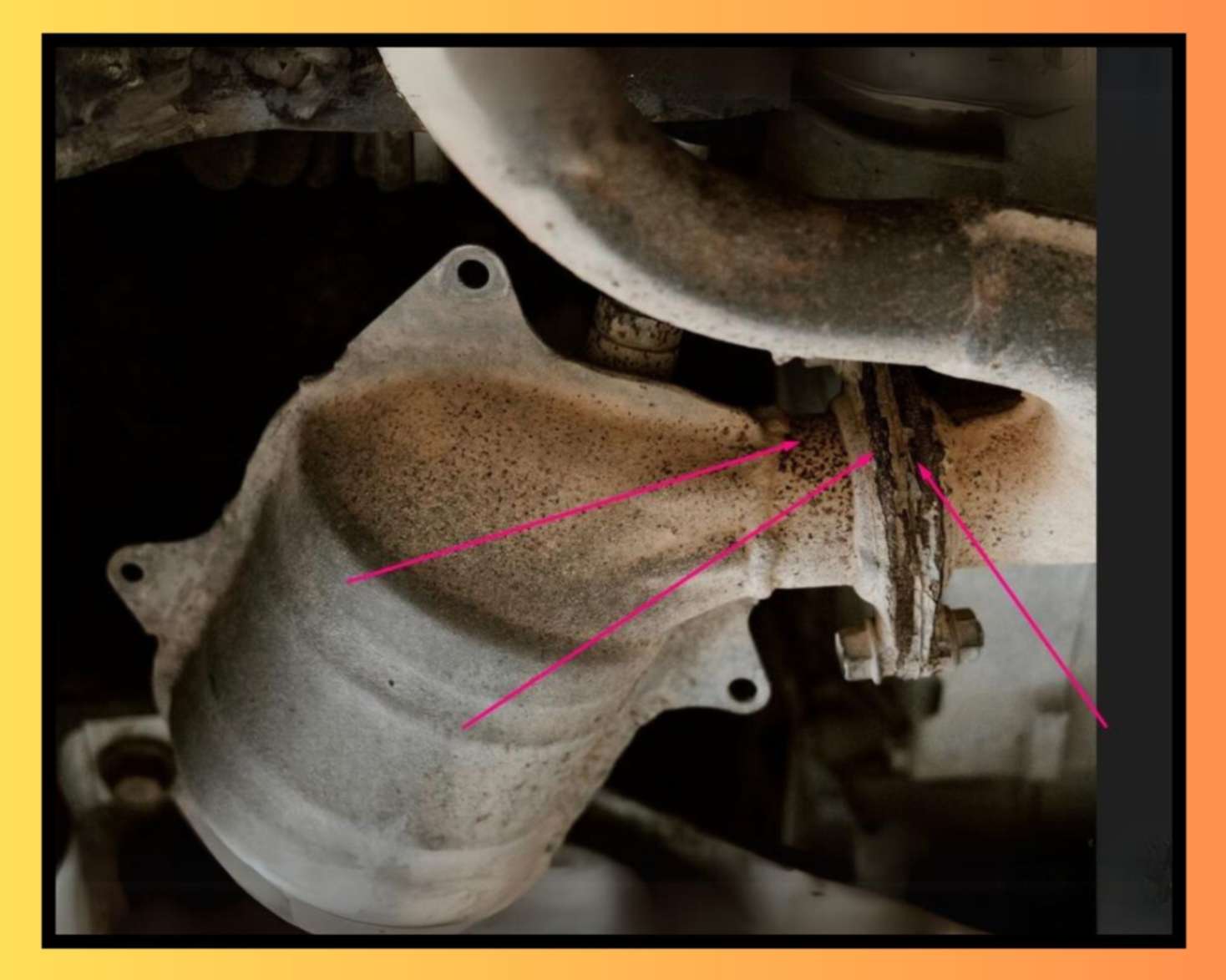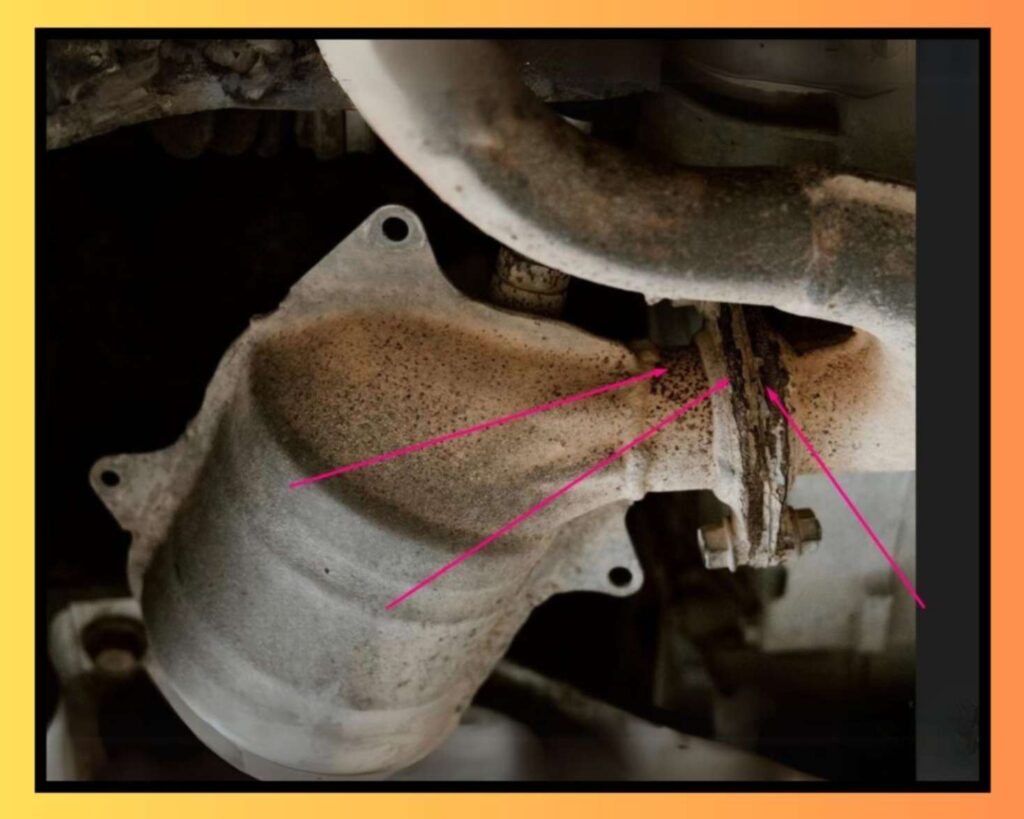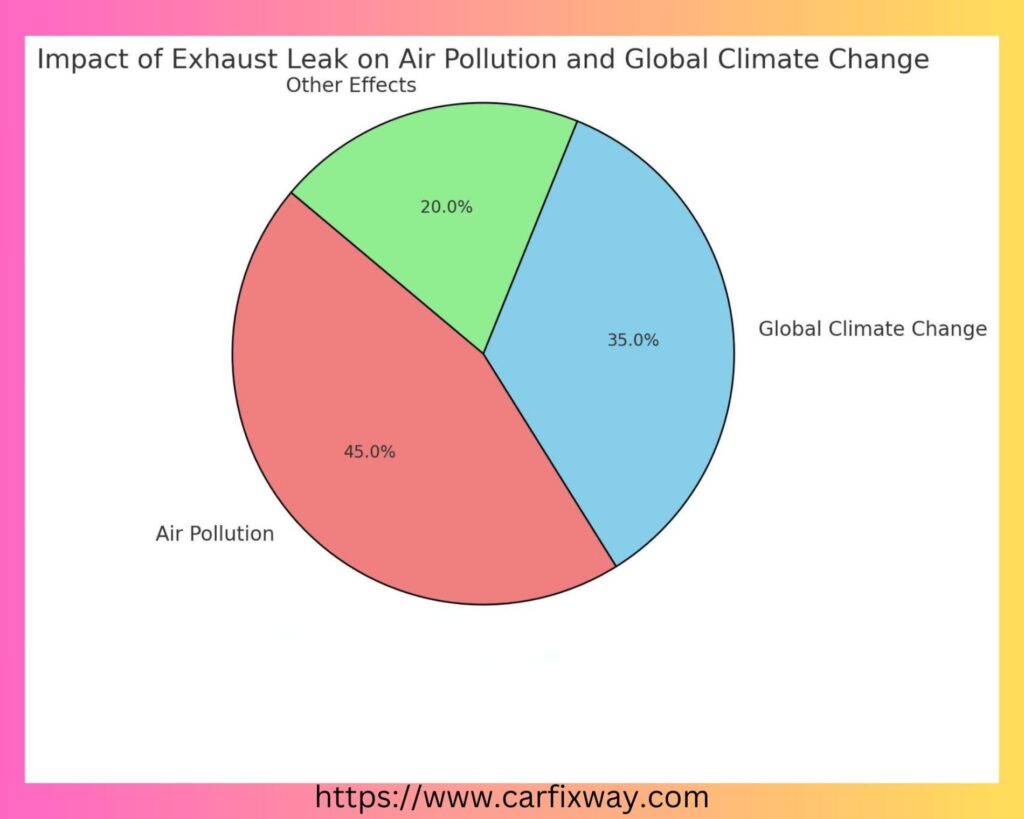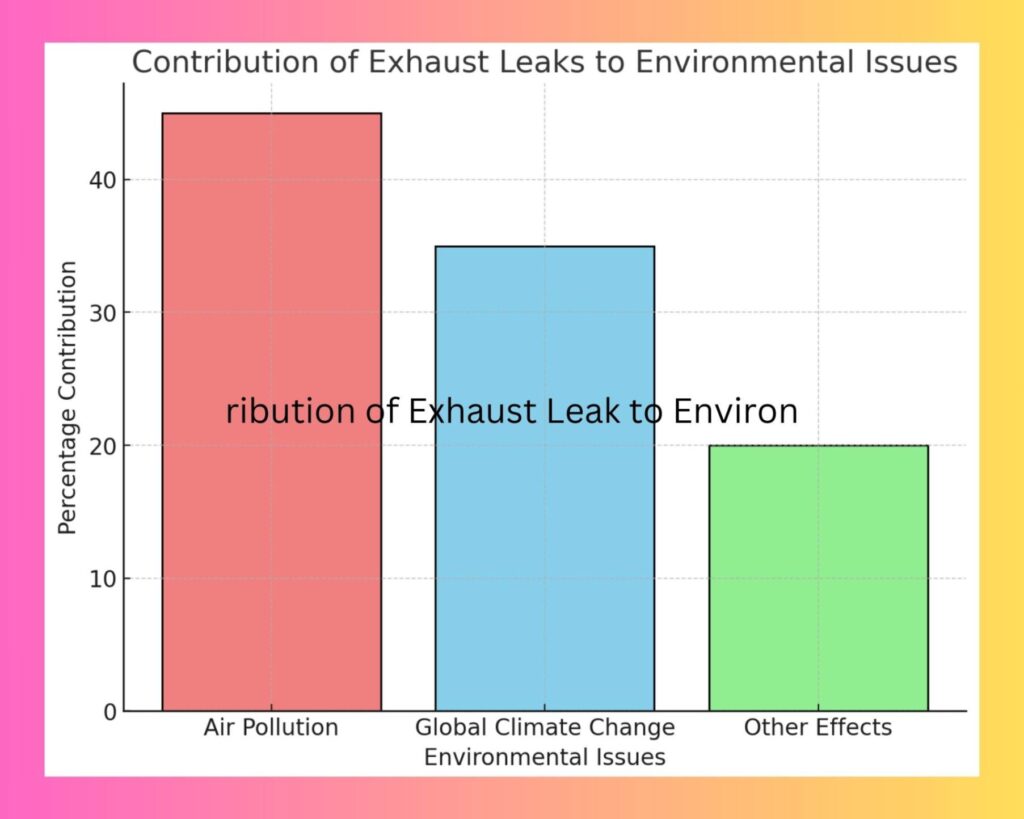Phone:
(701)814-6992
Physical address:
6296 Donnelly Plaza
Ratkeville, Bahamas.


Can an Exhaust Leak Cause Poor Acceleration? Absolutely! An exhaust leak can significantly impact your car’s performance, leading to poor acceleration. When your exhaust system leaks, it disrupts the balance of the engine’s airflow, reducing efficiency and power.
Understanding how this affects your car starts with knowing key exhaust components. The exhaust manifold, pipes, and catalytic converter work together to maintain engine performance. When one of these components fails, especially with a leak, your car may struggle to accelerate smoothly.
So, can an exhaust leak cause poor acceleration? Yes, and in this article, we’ll explore why. We’ll look into the role of your car’s exhaust system and provide solutions that car owners and mechanics can easily follow to fix this problem.
Yes, an exhaust leak can cause poor acceleration. When exhaust manifolds, pipes, or the catalytic converter develop leaks, they create inefficiencies in the engine’s exhaust flow, reducing the car’s ability to accelerate. Let’s dive into how each part contributes to the issue:
Over time, cast iron exhaust manifolds may crack due to heat expansion, allowing exhaust gases to escape. This leak disrupts engine performance and slows acceleration.
Corrosion, worn-out gaskets, or road debris damage exhaust pipes. These leaks reduce exhaust flow, making it harder for the engine to generate power, resulting in sluggish acceleration.
A clogged or cracked catalytic converter limits exhaust flow and allows harmful gases to leak. This affects engine power, making acceleration weak and fuel economy poor.
By identifying and fixing these leaks, you can restore your car’s acceleration and overall performance.
An exhaust leak can seriously harm your vehicle’s performance. When the exhaust system isn’t sealed properly, it throws off the balance of pressure that the engine needs to function efficiently. This leads to slower responses from your engine, especially when you hit the gas pedal. The engine struggles to “breathe” during combustion, which reduces its power output and makes the vehicle feel sluggish.
Can an exhaust leak cause poor acceleration? Absolutely! When you experience an exhaust leak, your engine loses power, especially during acceleration. This happens because the leak disrupts the flow of exhaust gases, making it harder for the engine to generate the necessary power. If left unchecked, the vehicle will keep losing performance and become less responsive to acceleration.
Can an exhaust leak cause poor acceleration? Absolutely! When your vehicle has an exhaust leak, it disrupts the air-to-fuel ratio, which directly affects how efficiently your engine runs. A poor balance means your engine works harder, burning more fuel, and in turn, you’ll notice more frequent stops at the gas station. Over time, this can lead to a significant drop in fuel efficiency.
A clogged exhaust, especially from a damaged catalytic converter, can choke your engine. While it might not always cause a misfire, it certainly makes your car run poorly. As the clog worsens, engine performance declines, and if the blockage becomes complete, the engine might stop altogether.
If you suspect an exhaust leak in your vehicle, several significant signs can help you identify the problem. Here’s what to look for:
A loud hissing, rumbling, or tapping noise is a clear sign of an exhaust leak. This sound becomes more noticeable during acceleration and may seem to come from the engine area.
Exhaust leaks often cause vibrations that can be felt through the gas pedal or steering wheel. If your car is shaking unexpectedly, this could be the cause.
One of the most serious symptoms is the smell of exhaust fumes inside the vehicle. This can indicate a dangerous leak and should be addressed immediately.
An exhaust leak can trigger the check engine light, usually due to issues with the oxygen sensor or catalytic converter. When this light comes on, it’s important to check for an exhaust leak as a possible cause.
Ignoring these symptoms can lead to further engine damage and pose a serious safety risk.
If you notice any of these symptoms, have your exhaust system inspected by a professional to prevent further issues.
Exhaust leaks can be caused by several factors, each with its own set of risks:
Over time, exposure to moisture and road salt can cause the exhaust pipes to rust and weaken, leading to leaks. This is a common issue, especially in older vehicles.
Impacts with road debris, curbs, or potholes can cause cracks or holes in the exhaust system, leading to leaks. This damage can happen without warning.
Poor sealing between the exhaust manifold and the engine block or between other components can cause leaks. Failed gaskets or worn-out connections are often to blame.
Exhaust leaks can lead to decreased vehicle performance and dangerous fumes entering the cabin.
Regularly inspect your exhaust system and replace any damaged or corroded parts to avoid these issues.
A clogged catalytic converter can severely impact your vehicle’s performance. When exhaust leaks occur upstream, unburned fuel can enter the catalytic converter, causing potential damage. The longer this issue persists, the more damage it can cause. This can lead to sluggish engine performance, reduced acceleration, dark exhaust smoke, and even a strong sulfur or rotten egg smell from the exhaust.
If you notice any of these symptoms, it’s critical to repair or replace the catalytic converter as soon as possible to avoid further damage.
Your oxygen sensor is key to maintaining fuel efficiency and preventing combustion issues. An exhaust leak can cause the oxygen sensor to misread, leading to inefficient fuel burning and possible sensor failure. As the problem worsens, you may experience rough idling, poor acceleration, and engine misfires. Ignoring these signs can eventually lead to a failed emissions test and costlier repairs.
Addressing a faulty oxygen sensor promptly will prevent larger engine problems and save on fuel costs.

Unchecked exhaust leaks not only harm your vehicle but also the environment. Increased emissions contribute to air pollution and global climate change. Harmful pollutants like carbon monoxide, nitrogen dioxide, and hydrocarbons are released, impacting air quality and public health. Vehicles with exhaust leaks also emit higher levels of carbon dioxide, a major contributor to global warming.

Start by visually inspecting your exhaust system to catch early signs of damage. This simple method can save you time and costly repairs. Look closely at the exhaust pipes, mufflers, and catalytic converter for visible cracks, holes, or rust. Rust is a key indicator of corrosion that, if left unchecked, could lead to further damage. Pay attention to any discoloration or soot stains, which can signal a leak. A thorough visual inspection is your first line of defense in identifying exhaust leaks.
Listening is another powerful way to detect exhaust leaks. Sounds like hissing, ticking, or popping near the exhaust manifold can indicate a problem. If you hear a loud rumble when accelerating, it’s likely a sign of an exhaust leak. Even minor hissing noises should not be ignored, as they can affect engine performance. An exhaust leak can cause a loss of power, making your car feel sluggish when you accelerate. So, always listen carefully while the engine is running.
For a quick at-home test, try the soapy water method. This easy technique helps you confirm the presence of an exhaust leak. Fill a spray bottle with a mix of kitchen soap and water, and spray it near the suspected leak area. If you see bubbles forming, you’ve found the leak. Additionally, use your hand to feel for escaping air, but be cautious as metal parts can heat up quickly.
This approach makes diagnosing exhaust leaks accessible and straightforward for all vehicle owners.
When considering DIY repairs for exhaust leaks, the main advantage is cost savings. DIY fixes, like using exhaust sealants or clamps, can run between $50 and $250, depending on the parts needed. Another benefit is flexibility, allowing you to repair on your schedule.
However, DIY can be time-consuming and risky if you’re not experienced, as improper repairs may lead to safety hazards or further damage to the engine. DIY also typically lacks warranties, which means any follow-up issues are your responsibility.
Professional repairs, on the other hand, provide expertise and usually come with warranties, offering peace of mind. Professionals use specialized tools, to ensure the repair is done safely and efficiently.
However, this convenience comes at a higher price, with typical repair costs ranging between $100 and $600 depending on the extent of the damage, such as welding or gasket replacement. This option saves you time and reduces the risk of improper installation, which could lead to costlier issues down the road.
The cost to repair an exhaust leak varies based on labor rates, the type of repair, and parts. Independent shops charge about $80 to $90 an hour, with total labor costing between $160 and $270 for typical repairs. Dealerships often have higher labor rates, around $110 per hour, making labor costs fall between $220 and $330. Parts like gaskets, exhaust pipes, or catalytic converters can range from $50 to $1,500, depending on your vehicle and the repair required.
Choosing between DIY and professional repair largely depends on your budget, available time, and comfort with handling potentially complex repairs.
Exhaust leaks can cause serious damage to your vehicle if not addressed promptly, especially in areas prone to rust and corrosion.
Effect:
Neglecting regular exhaust inspections can lead to bigger and more expensive repairs down the road.
Solution:
Conducting periodic inspections by a professional can catch small problems early. Here’s how:
Regularly have your exhaust system checked by a mechanic to spot leaks or potential damage.
In rust-prone areas, apply rust-proof treatments to protect your exhaust and undercarriage.
Identifying small issues early prevents them from becoming major repairs, saving time and money.
Rough driving habits can worsen existing exhaust leaks and even cause new damage.
Driving without care can turn minor exhaust leaks into costly repairs.
Follow these smooth driving tips to protect your exhaust system:
Braking smoothly reduces strain on your exhaust.
Take extra care when driving over speed bumps or potholes to avoid damaging the undercarriage.
Consistent speeds help prevent unnecessary wear and tear on the exhaust system.
By adopting these habits and scheduling regular inspections, you can keep your car’s exhaust system in top shape!
An exhaust leak can certainly cause poor acceleration, especially if it affects the vehicle’s backpressure, leading to reduced engine performance. This can result in sluggish acceleration, lower fuel efficiency, and even potential engine damage if left unresolved. Addressing the issue promptly not only restores your car’s performance but also ensures your safety. Regular maintenance and immediate repairs of exhaust leaks can prevent further complications and help keep your vehicle running smoothly.
Yes, an exhaust leak can cause poor acceleration. It disrupts the airflow in your engine, leading to lower performance and sluggish response.
An exhaust leak affects engine performance by reducing backpressure, which lowers engine efficiency. This results in poor acceleration and a loss of power.
Even a small exhaust leak can impact acceleration. It may cause the engine to run less efficiently, leading to reduced power output.
If the leak occurs before the oxygen sensor, it can mislead the engine’s computer, causing fuel mix issues and significantly harming acceleration.
Signs of an exhaust leak include loud engine noise, poor acceleration, and sometimes the smell of exhaust fumes. It’s best to have it checked by a mechanic.
Yes, an exhaust leak can also lower fuel efficiency, increase emissions, and allow dangerous fumes into the cabin, affecting overall vehicle performance.
No, driving with an exhaust leak is unsafe. Besides poor acceleration, it can lead to carbon monoxide entering the cabin and pose health risks.
An exhaust leak can cause your engine to work harder, resulting in more fuel consumption and lower fuel economy.
You can fix an exhaust leak by sealing the damaged area or replacing affected components. It’s best to consult a mechanic if you’re unsure.
Yes, fixing an exhaust leak can restore normal acceleration and improve overall engine performance by balancing airflow and pressure.